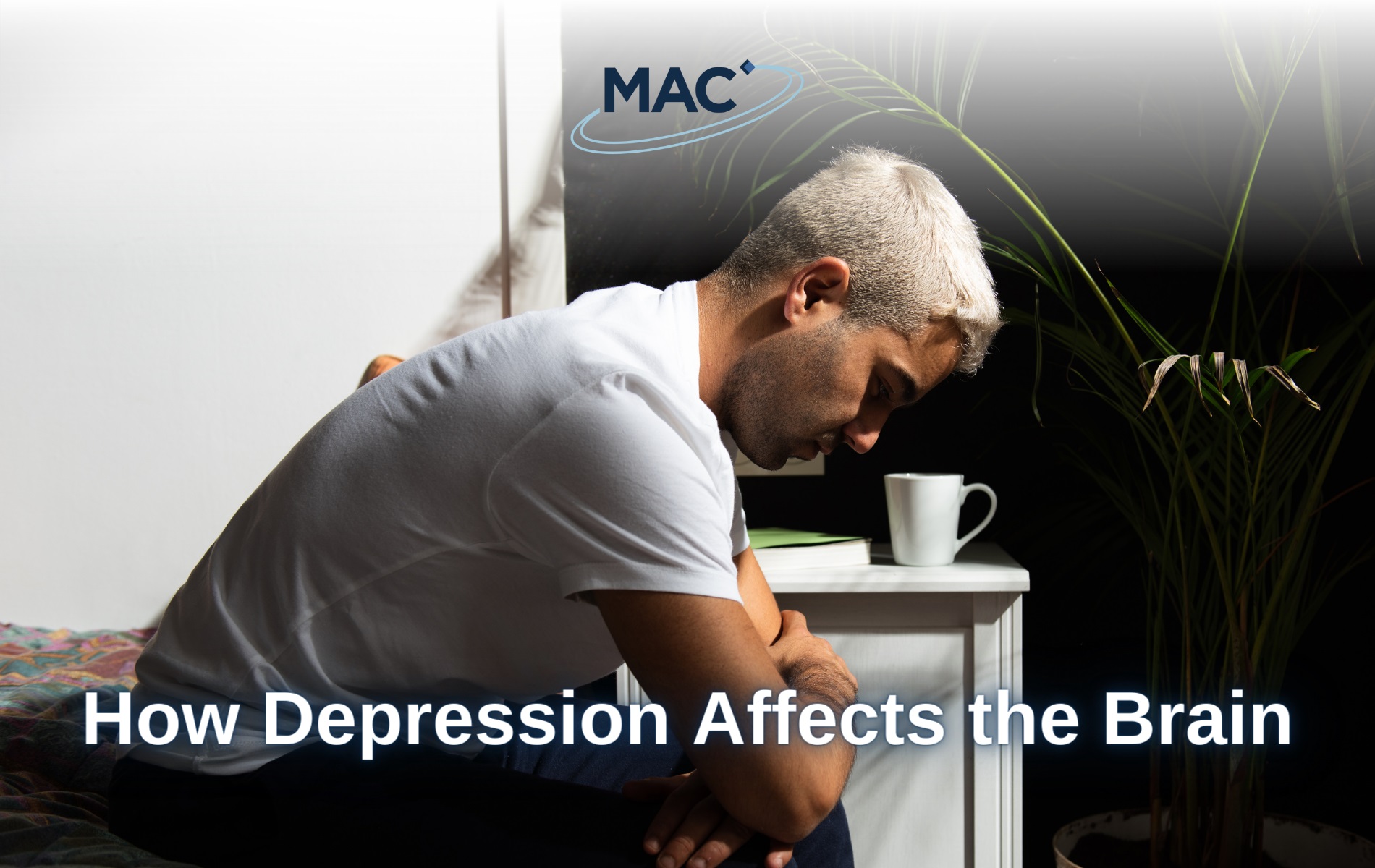Depression is often associated with overwhelming sadness, lethargy, and a sense of hopelessness. However, the impact of depression goes beyond these emotional symptoms, affecting various aspects of an individual’s life, including their cognitive functions and memory.
Around 1 in 6 adults in the UK stated they have experienced moderate to severe depressive symptoms1.
Depression, also known as Major Depressive Disorder (MDD) is a mental health disorder that can make an individual feel persistently sad for a long period of time. The condition has a range of symptoms, affecting everyone differently, but primarily include feeling hopeless and sad, losing interest in things that you used to enjoy, it can also bring on feelings of anxiousness or irritability.
MDD does not just have psychological symptoms; however, it can also have physical side effects like feeling exhausted, trouble sleeping, losing your libido (sex drive), and either overeating or loss of appetite.
One of the lesser-known side effects of depression is its impact on the brain, its cognitive functions and memory recall. When someone experiences depression, changes occur in the brain’s structure and function. One crucial area affected is the hippocampus, a region responsible for memory formation and retention. Research has shown that chronic stress, often a precursor to depression, can shrink the hippocampus2. This shrinkage can impair the brain’s ability to form new memories.
Furthermore, depression can make it challenging to concentrate and focus. Individuals with depression often report racing thoughts, restlessness, or an inability to think clearly. This cognitive “fogginess” can lead to difficulty in processing and storing information, further contributing to memory problems.
According to research, the prevalence of difficulty in cognition in people with depression is 85–94% during depressive episodes3.
These side effects of depression can enter into a vicious cycle. As memory problems worsen, individuals may become more frustrated, anxious, and isolated, exacerbating their depressive symptoms. Breaking this cycle often requires comprehensive treatment that addresses both depression and cognitive decline.
Individuals living with depression are often prescribed antidepressant medications to manage their symptoms. Some of these medications, however, can have side effects, including cognitive impairment and memory problems. It’s essential for individuals to discuss these potential side effects with their healthcare providers and explore alternative treatments if necessary.
It is crucial that further research is conducted to improve the treatment options for those living with depression and cognitive decline.
To find out more about any future clinical trials for depression at MAC Clinical Research, visit our future trials page. to register onto our database of volunteers.
All our clinical trials are free to take part in, and you’ll receive a full health check-up from one of our trained medical professionals as part of the trial. If eligible to take part, you’ll receive travel expenses to and from our clinics. Depending on the research, you may also receive financial reimbursement for your time and commitment to the trial.
1 Office for National Statistics – Cost of living and depression in adults, Great Britain: 29 September to 23 October 2022
2 The American Journal of Psychiatry – Hippocampal Volume and Depression: A Meta-Analysis of MRI Studies
3 National Library of Medicine – Cognitive impairment in depression: recent advances and novel treatments








